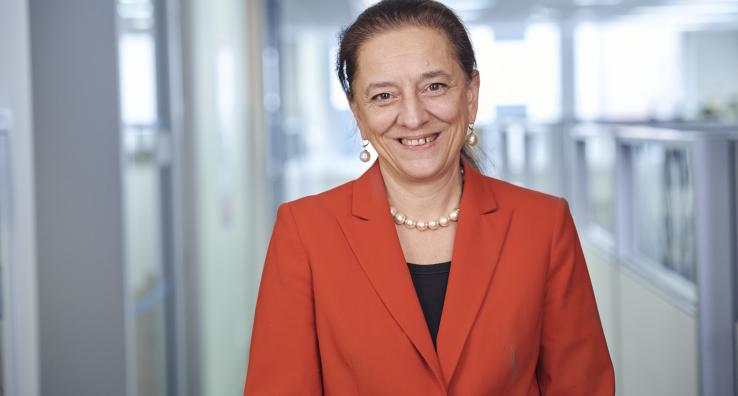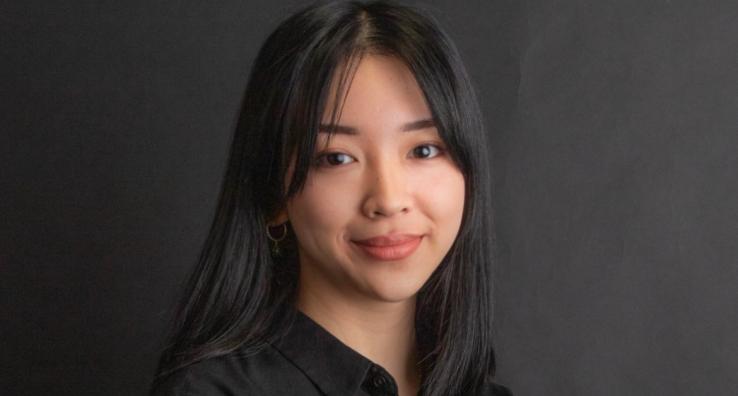As September begins, IFAC had the pleasure of hosting a back-to-school interview with Isabelle Tracq-Sengeissen, an audit partner at EY in France with 32 years of experience in auditing. Isabelle is a remarkable mentor who is passionately involved in the development of auditing and the accounting profession in foreign countries. She was joined by Yingying Liu, a student at the Neoma Business School in Rouen, France. Together, they discussed experiences that can shape a student's journey to becoming a professional accountant.
Image

Annie Brinich (AB): Isabelle, you’ve worked to guide entry-level professionals in their journeys to develop as professional accountants for several years. Can you tell us a little more about your motivation for joining the profession? And how did your accountancy education and professional journey make you the leader you have become?
Isabelle Tracq-Sengeissen (IST): I joined the profession in 1990, at the end of my master’s degree at NEOMA Business School. Among all the possible careers at the end of a business school, auditing was providing many more opportunities to develop both technical and communication skills, and was also giving international exposure and a fast-moving career path. I always said, “I will stay in the auditing profession as long as I am doing interesting things with great people,” Thirty-two years later, I am still here, as I am still doing on a daily basis interesting things with great people.
Image

AB: I actually have the same question for you, Yingying: what about becoming a professional accountant spoke to you? Is there anything you’ve particularly enjoyed about any training and practical experience you’ve had?
Yingying Liu (YL): When I first heard about the auditing profession in preparatory classes[1], it was difficult to fully understand all the aspects of the job. However, when I was in the preparatory classes, we had a partnership with the EY Foundation that enabled us to have an auditor as a mentor. So I had a first EY mentor already at that time. This initiative aimed to familiarize young individuals with the profession. It spoke to me because I was uncertain about my career path, and I believed that working in auditing would provide us with technical skills and a comprehensive understanding of how a company operates globally. At that time, through my mentor's guidance, my interest in the field grew, leading me to follow in his footsteps.
The aspect I found most appealing during my apprenticeship at EY is the permanent stimulation. We always work as a team. I have personally learned a lot from my seniors about accounting standards, and Excel, as well as methods to work more efficiently and have positive client interactions.
[1] In France, it is common for students to join a “preparatory class” to prepare for the exam to enter in a business school. “Preparatory classes” last 2 or 3 years, before joining a business school for 3 years and getting a master 2 grade.
AB: Isabelle, could you share your thoughts on the importance of having a more senior accountant that a student or young professional can look to for guidance? Did you have a mentor or a role model when you started out? If so, who were they and what did you learn from them?
IST: In the auditing profession, you often learn by doing. Having a mentor allows to add someone else’s experience to your own experience and increase your ability to deal with many situations. In my firm, we always had a “counselor” or “mentor”, but I also took the opportunity to ask many questions to all the senior partners and managers I was working with, so as to enhance my experience. Of course, some of these questions were dealing with technical matters, but also with how best to manage diverse teams, how to meet deadlines and how to communicate internally and externally.
AB: Yingying, it sounds like having a mentor or a role model can be helpful for someone entering the profession. As a young professional, are there specific circumstances you can think of where having someone to go to for guidance is (or would be) especially valuable? What steps are you planning to take to make the most of your time during your education journey and develop a strong professional network?
YL: I think having a mentor is very useful when you enter the professional world. First of all, it gives you a reference point and it is reassuring to know that your mentor will be here to help you in case you encounter a problem.
In my case, Isabelle has provided me insights into the firm's culture, policies and procedures, offered personalized advice and facilitated networking. What's more, in my opinion, a mentor is also a role model, a person who inspires us, like Isabelle. The fact that she had a similar academic path as I have also enabled me to envisage the potential evolution opportunities within the firm.
When I started to work, I understood that it was important to have a strong professional network; it allows us to grasp the opportunities. Personally, I was able to get my internship at the Professional Practice Group thanks to Isabelle, whom I met at Neoma. There were also events organized by Neoma and EY that enabled me to meet my coworkers. I have also planned to participate in many events organized by the firm or my school. It’s an occasion to meet new people and friends again.
AB: Isabelle, what do you think that people interested in becoming mentors to new or future professionals can learn from their mentees? What would they gain from having a mentee?
IST: Many people want to be mentors because they want to “understand what younger people think.” But it is not only that. It is more a “win-win” relationship where you share ideas, recommendations and get in return other ideas and recommendations that you can apply in your daily job. Younger people have of course a view on how the work could be further automatized with electronic tools and techniques, but also how to find relevant information in a more efficient way.
AB: Yingying, on that note, is there anything you wish professionals who have been in the field for 10+ years knew about people who are just now entering the profession?
YL: I hold the view that work flexibility carries significant importance for the younger generation. Our perspective on the equilibrium between professional commitments and personal life can differ. A harmonious balance in this regard notably enhances work efficiency. Additionally, I am of the opinion that the work environment stands out as a pivotal factor influencing my inclination to either remain with or join a company.
Lastly, I'd like to emphasize the importance of introducing students to mentoring programs, much like the one I experienced during my preparatory classes and at EY with the mentoring system. This opportunity enabled me to engage in discussions with professionals and gain insights into their perspectives on the job. Personal narratives are consistently more inspiring.
AB: Isabelle, you’ve worked extensively in developing the accounting profession in French-speaking countries around the world. What can the profession do to make sure young professionals remain attracted by the opportunities the profession offers?
IST: Many students may consider the accounting and auditing profession “old-fashioned” maybe because of the subject matter, which appears to be very technical, or because the profession is not communicating much to the public at large. However, I am convinced, and I share this conviction with the students I liaise with, that the learning atmosphere and the fast career track is quite unique in auditing compared to other sectors. Probably we should communicate more. Who knew that in an audit firm, after few years, you spend as much time in managing teams, doing go-to-market activities and leading internal projects as you spend on technical matters? Working as an apprentice, like Yingying is doing, is also a great opportunity to communicate with fellow students on what an audit is in “real life” or to communicate to fellow students what to audit in “real life”.
People in the accounting profession have also to explain that if some people will stay many years in the profession, many others will leave after a few years to join a company or the public sector. Accounting and auditing are considered “career accelerators” for a career in accounting and finance and that experience internationally valued.
AB: Yingying, what are you most looking forward to as you return to school? Can you share with us your aspirations for the upcoming school year?
YL: I'd like to attend courses that present practical cases related to the realities I've encountered during my audit engagements at EY such as classes like sustainable reporting and data analytics. Also, since I won't have to travel or go to the client's office during my time at Neoma, I'll have more time to deepen my knowledge of auditing standards and IFRS, which will be useful for my future career.
AB: [For both] As we embark on a new academic year, could you offer some advice on how students can make the most of their educational experience and achieve their goals? And any thoughts on how students can effectively balance their academic studies with extracurricular activities?
IST: When I read the resume of a candidate, I always look of course at the academic background, but also the internships and other professional experience, and also the extracurricular activities. It is very important for students to put their knowledge into practice, which includes also taking responsibilities in not-for-profit activities, leading projects, managing teams, etc. Often, when I discuss students with professors, we note that the students who perform the best academically are also the ones that are most involved in other activities, and this balance is probably a key to success.
YL: In my opinion, we need to make the link between what we learn at school and what we practice in the workplace stronger. Moreover, taking the initiative to pursue personal interests and projects is essential, and this can be accomplished by engaging with our network, including coworkers, professors, and professionals. Personally, I have developed interests in certain industries, such as the tech industry and consolidation. I have engaged with my professional network at work to seek out missions at EY that align with my interests. I'm also part of an association from my preparatory school in Paris. We hold meetings with new students, and my role is to help them prepare for business school interviews, using my work and school experiences to provide advice. To achieve a good balance between studies and extracurricular activities, organization is the key to success. Whether it's at work or when I need to study, I always schedule a time to pause my activities and head to the gym for CrossFit classes or to meet my friends. This practice contributes to heightened effectiveness upon resuming school or work commitments.
Disclaimer : The views expressed do not necessarily reflect those of IFAC or SSBs.
